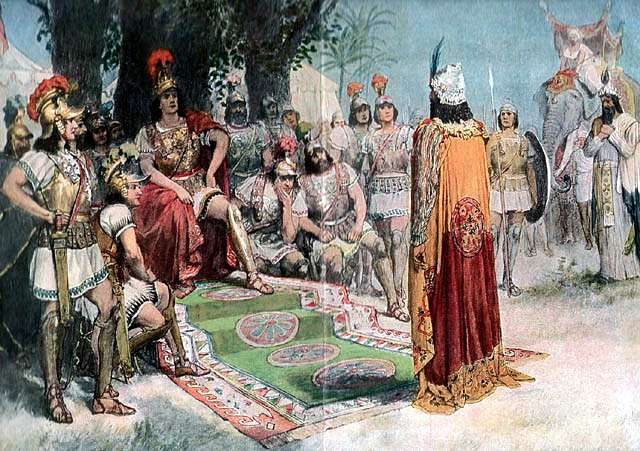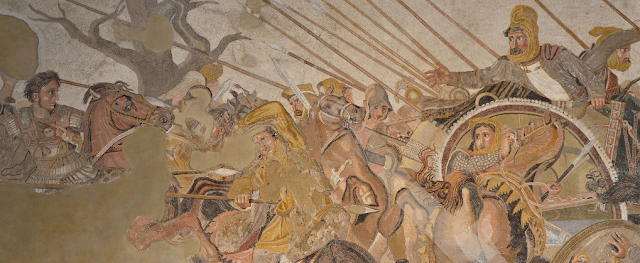The Fearless Warrior: King Porus and the Battle of the Hydaspes
In the annals of history, few encounters capture the imagination quite like the clash between Alexander the Great and King Porus. In 326 BC, on the banks of the mighty Hydaspes River (present-day Jhelum), these two legendary figures locked horns in a battle that would forever be etched in the sands of time.

Who was King Porus?
King Porus, also known as Purushottama, was a valiant ruler of the Paurava kingdom, a prosperous realm straddling the Punjab region. Renowned for his courage, chivalry, and military prowess, Porus stood as an indomitable obstacle to Alexander's eastward ambitions.
The Stage is Set
Fueled by his insatiable thirst for conquest, Alexander, having decimated the Persian Empire, set his sights on the riches and glory of India. However, his path was not without hurdles. Local rulers, wary of the Macedonian juggernaut, formed alliances to counter the foreign threat. Among them was King Ambhi of Taxila, who, driven by personal vendetta against Porus, sought Alexander's aid in subjugating his rival.
The Mighty Hydaspes
Undeterred by the treacherous terrain and formidable alliances, Alexander forged ahead, reaching the banks of the raging Hydaspes. There, on the opposite shore, stood Porus, his war elephants trumpeting a challenge, his vast army a sea of gleaming armor and resolute faces.
The Battle Rages
The Battle of the Hydaspes was a spectacle of valor and carnage. Alexander, known for his lightning-fast tactics, attempted to outmaneuver Porus's numerically superior force. However, the Indian king's war elephants proved to be a game-changer. These colossal beasts, adorned in armor and wielding tusks sharpened to deadly points, wreaked havoc on the Macedonian ranks.

A Pyrrhic Victory
Despite suffering heavy losses, Alexander's tactical brilliance and the ferocity of his Companion cavalry eventually prevailed. Porus, though defeated, refused to yield. Impressed by his courage and dignity, Alexander offered him his kingdom back, marking a rare instance of magnanimity in the conqueror's bloody campaigns.
The Legacy of King Porus
Though the battle ended in a Macedonian victory, King Porus's resistance served as a potent symbol of Indian resilience. His courage and leadership in the face of overwhelming odds continue to inspire generations. While Alexander's empire soon crumbled, the legend of King Porus lives on, a testament to the indomitable spirit of a warrior who dared to defy an emperor.
I hope this blog post was informative and engaging. Please let me know if you have any other questions.
